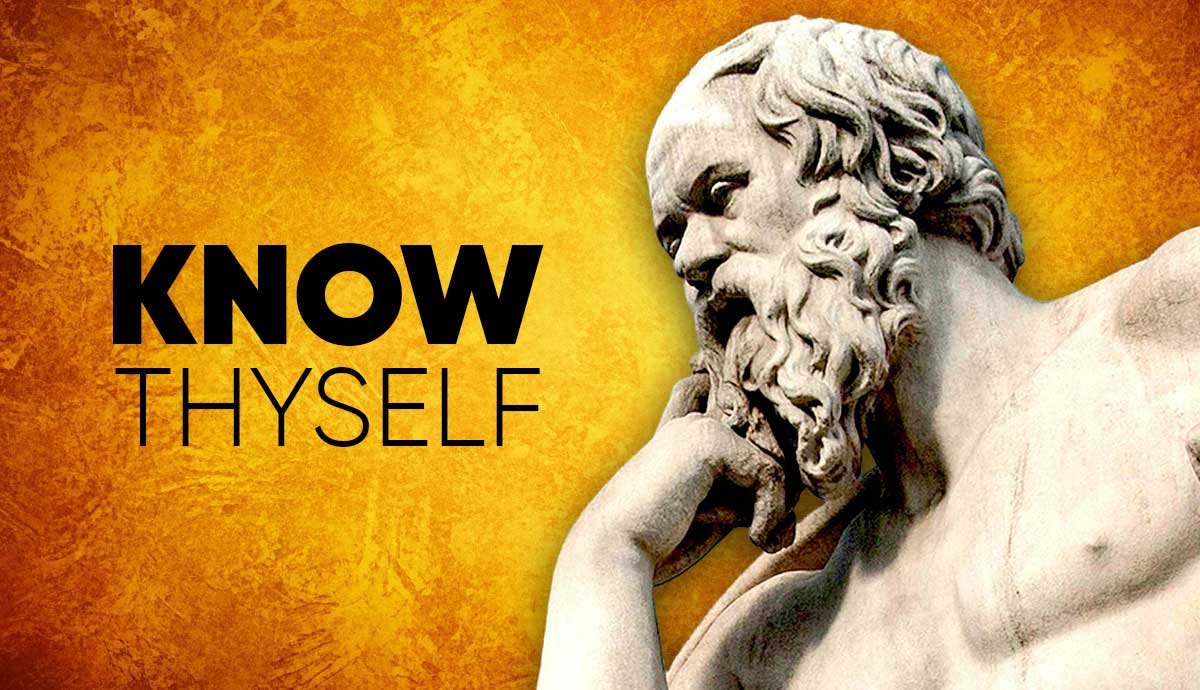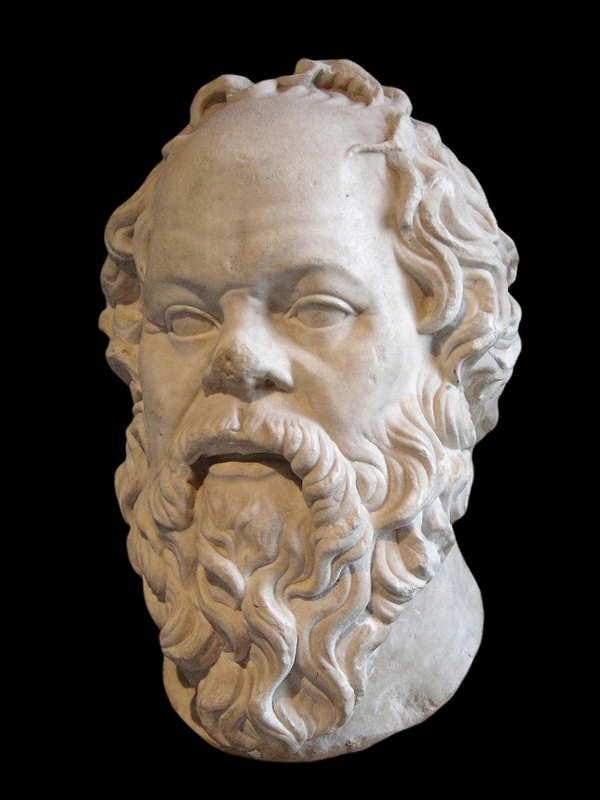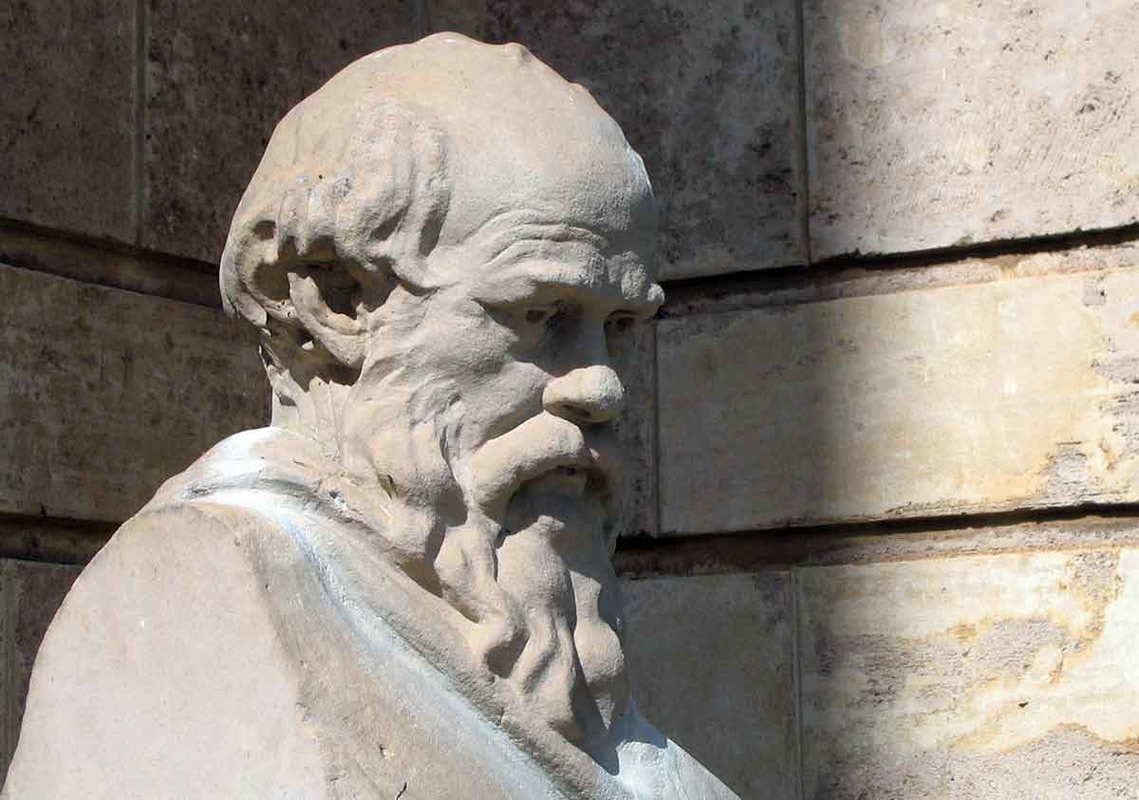What Did Socrates Really Mean When He Said “Know Thyself”?
One of the most famous maxims in the history of philosophy is “Know thyself”, but what does it actually mean?
Inscribed at the Delphic temple of Apollo was the famous saying, “know thyself.” Socrates often referred to this in many of Plato’s dialogues. For him, self-knowledge was at the heart of philosophy—not in the modern sense of self-discovery, but in terms of self-examination and moral growth. This article looks at what self-knowledge meant to Socrates and why it mattered so much to him.
Which Platonic Dialogues Talk About Self-Knowledge?
Many Platonic dialogues focus on self-knowledge, especially Charmides and Phaedrus.
In Charmides, Critias says the Delphic saying “know thyself” means ‘sôphrosynê’, which is often translated as temperance, but literally means soundness of mind. Socrates questions this, suggesting that self-knowledge might mean knowing one’s own mind. The dialogue explores whether self-knowledge is about looking inward (reflexive knowledge) or about knowing external things (intentional knowledge). It also looks at whether such knowledge is even possible or useful.
Though the dialogue ends without a clear answer, it shows that self-knowledge means knowing ourselves as thinking beings, understanding what we don’t know, and using what we do know to act well.
In Phaedrus, Socrates admits, “I am not yet able... to know myself.” He says this when explaining why he doesn’t have time to explore Greek myths. The passage reminds us that self-knowledge is a lifelong process. Even a wise philosopher like Socrates hadn’t finished it. Phaedrus also shows how we need others to act as mirrors, helping us see ourselves more clearly. So, self-knowledge is not just something we do alone—it’s also developed through dialogue with others.
What Is Self-Knowledge According to Socrates?
For Socrates, self-knowledge is a moral and dialectical process. It means examining your beliefs, actions, and ideas—and especially realizing how little you really know. As he says in Apology, “All I know is that I know nothing.”
Self-knowledge is not about finding a hidden, pre-existing self. Instead, it’s about becoming a self that can be known, as scholar Christian Moore explains. This means creating yourself through deep thinking and constant moral effort.
Socrates believed this can’t happen without conversation. Talking to others helps reveal your true thoughts and motivations, which is why he chose to teach through dialogue, not just private reflection.
How Are Self-Knowledge and Morality Connected?
For Socrates, self-knowledge is essential to living a moral life. By knowing ourselves, we become people who can act based on understanding and values. Just the act of examining our thoughts and actions is already a step toward being better.
Through conversation, we improve our ideas, understand other people, and become more virtuous. So, the Delphic saying “know thyself” isn’t just advice—it’s a moral duty.
As Moore puts it, Socratic self-knowledge is about growing up, facing your own ignorance, and taking responsibility for your life. That’s why Socrates’ view of self-knowledge is still important in today’s discussions on ethics and self-development.
Why Is Self-Knowledge So Important for Socrates?
Socrates believed self-knowledge was the foundation of a meaningful life. In Apology, he famously said, “The unexamined life is not worth living.” He saw knowing oneself as a life’s mission, without which one cannot live well.
According to Aristotle, Socrates’ whole philosophical path was built around that idea. In all of Plato’s dialogues, Socrates uses discussion to uncover and explore the beliefs of others—and himself. His whole life shows what it means to live by the Delphic command: to know oneself is to live wisely and morally.
Must share your thoughts in comments if you like the post, and share, please
We post all content for free, so please support Human Philosophy by becoming a paid subscriber or buying me a coffee here.
Want to support my work? Click bellow button
Read more posts and thank me later:
10 Mind-Blowing Facts About Social Psychology You Need to Know
10 Surprising Ways Stress Affects Your Mind and Body—and How to Fight Back!
Divorce Red Flags: Signs Your Marriage Might Be Heading for Trouble
Does a Narcissist Know They Are a Narcissist? Understanding Narcissistic Awareness
Exceptionally Motivating 8 Practices to Cultivate Mental Toughness
How Dark Psychology Can Sabotage Relationships and Ways to Break Free
How Dark Psychology Manipulates and How You Can Protect Yourself
How Do I Know If I’m in a Relationship with a Narcissist? Signs, Symptoms, and What to Do
How to Improve Your Emotional Intelligence for Better Relationships and Success
How to Spot Fake Nice People: Key Signs and Red Flags to Watch For
The Dark Side of Success: How Ambition Can Lead to Moral Compromise
The Narcissistic Mask: How Charisma Can Hide a Dark Personality
The Power of Habits: How to Build Positive Routines and Break Bad Ones
The Psychology of Envy: How Jealousy Shapes Our Thoughts and Actions
Understanding Anxiety: Causes, Symptoms, and Effective Coping Strategies
Unstoppably Productive 8 Hacks to Boost Your Focus and Concentration
Why Do People Feel Pleasure in Others’ Misfortunes? Understanding Schadenfreude










I think when Socrates said “know thyself”, he commanded to look beyond intellectual knowledge, referring to look deep into self-consciousness even more deeper consciousness level of self, something similar to the guidance the Buddha by Vipassana Meditation. I recalled a remarkable comment by a local archeological researcher that there was an insertion to that quote “Know thyself”. He said “Know thyself; knowledge yourself will liberate you”.
Wonderful post.